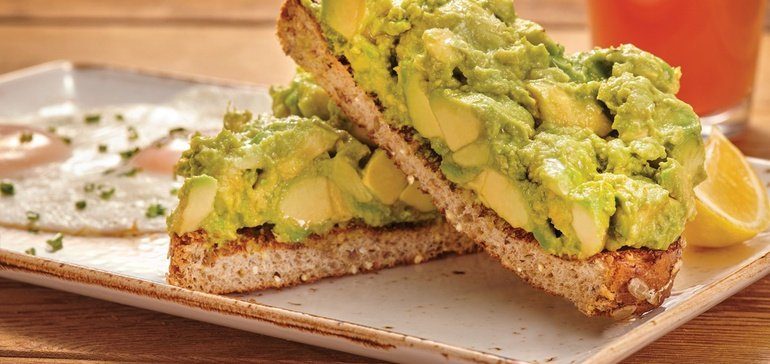Avocado consumption hits record highs, driven by health trends

Dive Brief:
-
Monthly shipments of avocados to the U.S. set a new record in January 2021 at nearly 320 million pounds, representing a 33% year-over-year increase, according to research from Rabobank. Demand is also growing year-round, with shipments in March 2021 up 20% compared to the same time in 2020.
-
While Rabobank does not expect prices to hit the same levels as 2019, it anticipates average avocado prices to remain higher than in 2020. The report estimates shipments for 2021 and 2022 to be up 12% compared to the three-year average for 2018 to 2020.
-
Per-capita consumption has more than doubled between 2010 and 2020 to hit more than 8.5 pounds per year, and could surpass 11 pounds per person by 2026. Interest in healthy eating is driving demand along with restaurant reopenings and a boost in economic activity as pandemic restrictions lift, but issues around sourcing and sustainable cultivation pose challenges, Rabobank noted.
Dive Insight:
Sometimes referred to as a superfood, avocados pack a serious punch with high levels of monosaturated fat as well as potassium, fiber, folate, essential vitamins and minerals. Consuming the green fruit instead of refined carbohydrates can also boost satiety in adults with weight gain and obesity, according to research from the Illinois Institute of Technology’s Center for Nutrition Research.
Avocados have also proven to be highly versatile, making their way into everything from guacamole to ice cream. The upcycling startup Hidden Gem Beverage Co. even makes beverages from avocado pits. Indeed, the seeds have much potential value. At Pennsylvania State University, researchers have developed a range of natural food colorings in the red-orange-yellow spectrum from avocado seeds, and the pits may even have the ability to fight listeria.
However, as demand soars, sourcing remains a challenge for the avocado industry due to the regional nature of cultivation, the Rabobank report notes. Mexico is the main provider of avocados to the U.S. market, with Peru and California also among the biggest in the world. California will have a slightly lighter avocado crop this year compared to recent years, according to Rabobank. This could create supply challenges when California and Peru’s crop seasons end and Mexico transitions to a new season.
And the avocado industry needs to keep an eye on sustainability to ensure that the fruit’s “green gold” reputation remains. The Sustainable Food Trust has called attention to what it describes as the detrimental impact of the ongoing “green gold rush” around avocados. It cites research from Carbon Footprint Ltd that finds two small avocados in a packet has a carbon footprint that is twice the amount of a kilo of bananas, for example. Avocados are a challenging crop to cultivate, requiring specific conditions and a high number of inputs in some cases.
The several thousand miles they often travel to reach consumers is another factor that drives avocados’ carbon footprint along with land management policies in countries that incentivize production without accounting for deforestation.
This scrutiny comes as foods’ environmental and sustainable credentials become more important to consumers. Eleven percent of consumers recently shifted their purchasing decisions to include more products with environmental claims between 2019 and 2020, according to research from Kearney.
There are a few efforts to improve avocado sustainability. Finding a way to upcycle avocado seeds could also boost the carbon footprint of avocado production and provide food manufacturers with an opportunity to market their upcycled products to sustainability-focused consumers.
Source: fooddive.com

